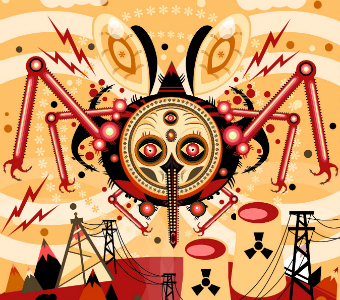At today’s Foreign Affairs Council meeting European ministers all but hailed (pdf) the “substantial progress made in the delivery of the new European Neighbourhood Policy”. One of the key priorities for the EU in its relation with neighbouring states is the cooperation in the energy sector. While this does theoretically include the promotion of energy efficiency and renewables, it is the security of Europe’s energy supply that receives the bulk of attention.
We’ve already discussed some of the pitfalls of the “energy security” narrative on this blog (here and here). In a recent study (pdf) based on cases from Ukraine, Georgia and the Western Balkans, we now examined the consequences that a security focus has for the character of the cooperation between the EU and its neighbours: Does the EU treat us as equal partners or does it rather play to the tune of a zero sum game?
The study could have served as useful reading material for the Council’s meeting, because it exposes the discrepancies between the ENP’s rhetoric and the concrete projects being pushed politically and economically.
As for the rhetoric, the ENP promises to
“promote good environmental governance in partner countries to prevent environmental degradation and pollution, protect human health, and achieve a more rational use of natural resources” (Source: European Neighbourhood Policy (pdf), p. 8)
Our study, however, shows that the EU’s external energy policy and the projects financed by international financial institutions not only prioritise Europe’s energy supply, but take damages to the exporting countries into account:
- … increasing the risk of nuclear accidents in Ukraine by financing the lifetime extension of Soviet style nuclear reactors and the high voltage transmission lines that will transport their electricity to Europe.
- … damaging natural habitats and water systems in Georgia by supporting a gargantuan export oriented hydropower scheme that is (among others) set to destroy the ecosystem of the Paravani river and the livelihoods of the adjacent communities.
- … reducing the “partner country’s” ability to develop its own renewable energy in sustainable and beneficial ways, as for example the case in the Western Balkans, from where Italy plans to import renewable energy in such amounts that the most suitable production sites will not be available for the countries’ own electricity needs.
Most of the projects examined in our study receive financial support from international financial institutions and/or the European Commission, thus concretely demonstrating Europe’s problematic interpretation of a “partnership” – making it a partnership of unequals.
Find more details in our study “A Partnership of unequals – Electricity exports from the eastern neighbourhood and western Balkans” (pdf)
To learn more about the European Neighbourhood Policy and how civil society can get involved in the Policy’s process – to make sure the invested money benefits people in the region without doing social, environmental and economic harm – visit our online ENP guide.
Never miss an update
We expose the risks of international public finance and bring critical updates from the ground – straight to your inbox.
Institution: EBRD | EIB
Theme: Energy & climate | Social & economic impacts | Other harmful projects | Balkans
Location: Ukraine | Georgia | Macedonia | Bosnia and Herzegovina | Albania | Croatia | Montenegro
Project: Hydropower development in Georgia | The ‘Second Backbone Corridor’ – High voltage electricity transmission lines, Ukraine | Zombie reactors in Ukraine
Tags: ENP | biodiversity | energy security | hydropower | nuclear | policy | renewables

